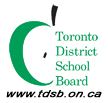January – April 2012
| Event Name: |
| Quadrantid meteors peak |
| Event Description: |
| A meteor shower occurs when the Earth passes through a dusty region of space, usually caused by a comet. Meteor showers are best observed around the peak night in dark skies, when the Moon is not up. Avoid light pollution, if possible. Some meteor showers, like the Perseids in August or the Geminids in December can produce 50 to 100 sightings per hour! Meteors will appear to radiate from the constellation with the similar name. The Quadrantids seem to radiate from the area around the Big Dipper.
http://www.nasa.gov/topics/solarsystem/features/watchtheskies/quadrantids_2012.html |
Solar Observing Sessions Sun, through hydrogen-alpha filter Solar Observing Sessions are a great opportunity to view the sun with the assistance of RASC members. Special filters and telescopes are used to ensure safe viewing. There may even be opportunities to view other objects like the moon and bright planets, when conditions permit. The sessions will usually take place as long as the sky is clear. GO/NO GO announcements are made on the top page of this web site and in the member’s Yahoo!Group. Sessions will normally be held the first Saturday of the month, except for long weekends, when the session will be held on the following weekend. We observe from 10am to noon. See the mini-calendar on the top page of this web site (www.toronto.rasc.ca) to confirm dates. We set up outside the main entrance of the Ontario Science Centre, on the TELUSCAPE pad. Please see our OSC location page.
Black Holes are like Kinder Surprises and Other Short Stories from the Universe
Hear stories of the Big Bang, dark matter, dark energy, extra-dimensions, parallel universes, quantum computers, and more. Join us as we host the very engaging Johannes Hirn from the Dunlap Institute for Astronomy and Astrophysics, University of Toronto.
The Astronomy Club invites the Huron Community to attend Family Astronomy night next Thursday, 1 March. We are planning various activities that should be of interest to everyone in the Huron community. We will have activities for young kids, lectures by some professional astronomers. If there are clear skies, we expect members of the Royal Astronomical Society of Canada will bring their telescopes and let us have a deep peek into the sky. Please RSVP so we know how much hot chocolate to prepare!

Bring your binoculars!
Keep looking up!
Featured Events:
- A lecture by Huron Parent and Astronomy Professor Yanqin Wu: Twinkling stars, how many planets do you have?
- A lecture by Astronomy Professor John Percy: How stars die. (Professor Percy is also the honorary co-organizer of the Family Night event. Thanks!)
- Paper craft activity: build your own model of the Subaru Telescope.
- Small Silent Auction with proceeds to Huron Parent Council.
- Toronto RASC members will bring their telescopes to the Huron field and share deep peeks into the night sky (depending upon cloud cover). President Ralph Chou will attend the event!
- Amateur telescope demonstrations by Khan Scope Centre!

Gravity: From Falling Apples to Ripples in Spacetime

SpEC binary black hole simulation – Image Credit: Harald Pfeiffer (CITA)
April 5th, 2012, 9:10pm
Speaker: Ilana MacDonald
Location: MP 102, 60 St. George street
Sign up for the Planetarium Show!
The force of gravity is something that each and every one of us experiences all the time. It’s what keeps us from flying into space off the surface of the earth, and what keeps the planets in orbit around the sun. In this talk, we shall explore the concept of gravity, starting with humanity’s earliest theories about how the this force works and ending with my current research on the ripples in space-time caused by inspiralling binary black holes. We will discuss the theories of the ancient Greek philosopher Aristotle, the renaissance scientists Copernicus, Galileo, and Kepler, and the revolutionary physicists Newton and Einstein. We will see that the evolution of the concept of gravity is closely tied with the history of science and astronomy.

Ilana MacDonald is a PhD candidate in the fourth year of her doctoral studies in the Department of Astronomy and Astrophysics at the University of Toronto. With her supervisor Prof. Harald Pfeiffer of CITA, she studies the gravitational waves, that is, ripples in space-time, given off by binary black holes. She is also very involved in Astronomy public outreach at UofT, helping organize public lectures, and giving planetarium shows to the public. In her spare time, she enjoys knitting and riding her e-bike all around the city (though not at the same time).
(Content taken from http://www1.astro.utoronto.ca/~gasa/public_talk/iWeb/Entries/2012/4/gravity.php)

 Agenda
Agenda
 Day
Day
 Month
Month
 Week
Week
